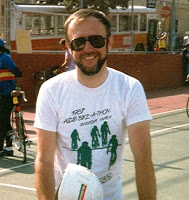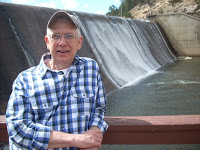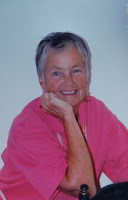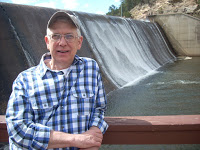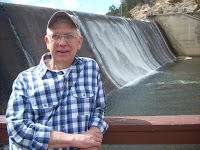The thing is, you can’t. Not completely. You can perhaps escape your current location and situation, your lack of money, to some extent your social status; even your family. But you can never escape who you are. You can perhaps escape some of your character traits, your paranoias and phobias. But you can never escape the basic YOU. You cannot escape being male or female, straight or gay. You cannot escape the color of your skin, or your ethnicity.
I have read that the average male thinks about sex every seven seconds. Whether or not that is true, I wonder if there have ever been studies of how many times a day I think of being a woman, or of being a lesbian. How often does Carlos register that he is Latino, in all circumstances.
Sadly, these frequent acknowledgements of who we are are most often, at least in my case, brought about by negatives; not directed at me, but at a woman, or women, a lesbian or members of the LGBT community. My tribe. You attack members of my tribe, you attack me. Or as Jesus said it, (depending on which translation you choose), ‘whatsoever you do to the least of these, you do also unto me.”
It took me a long time to get over the Orlando nightclub mass shooting; if indeed I have. 49 people died and another 58 were wounded for no other reason than that they were members of, or friends of, the LGBT community. It was ME that man was shooting at; ME that he hated enough to kill.
I saw a news video of blood-lusting ISIS men tossing a man from the rooftop simply because he was gay. I fell with him. It was MY body bursting as it hit the ground like a watermelon fallen from a truck.
The #metoo [Twitter] movement has brought much recent attention to the emotional and physical pain suffered by an appalling number of women in this country. But world-wide the treatment of, and attitude towards, women is frequently so much worse. I feel the pain of every woman forced to marry a man against her wishes, or forced to hide her shameful body in clothes she hates. Crimes against women, rape in particular, are rarely prosecuted or even illegal in so much of the world. In Hungary I met a young woman whose grandmother had been raped many times in World War Two, first by the Germans going East and the by the Russians battling West. Rape has always been a weapon of war; indeed of brutal men everywhere, in all circumstances. I feel for, in every possible sense of the words, those tragic Nigerian schoolgirls kidnapped by Boca Haram and forced to live as nothing less than sex slaves to big, angry, violent men.
In February of this year, Rodrigo Duterte, the mass-murdering president of The Philippines, issued a new order. He reportedly told his soldiers to specifically target women rebel fighters, and not to bother killing them but to shoot them in the vagina because then they will be useless as women anyway.* You could write a book, a whole series of books, about that statement. Except that I am way too angry, and it hurts too much even to address those terrible words. What you do to them, you do to me.
Just last month I read about the neo-Nazis in Australia. (Maybe I would sleep better if I went back to my old favorite Winnie the Pooh books!) They sing a delightful ditty, those modern-day Nazis, the refrain of which is, we will get the seventh million yet. Those words sickened me. But I am not Jewish. Yet I know how very much black lives matter, as I hide here in my white skin. And I am forced then to realize that my tribe is not women; not gays and lesbians. I am stuck with feeling the pain of the whole damn world: the entire bloody human race, all the freakin’ people everywhere. And, given the pattern of man’s inhumanity to man, I don’t see the pain going away any time soon.
But I know, somewhere very deep down, that I welcome the pain; the anguish I feel for every hurting member of my huge tribe. It assures me that I am capable, indeed all too capable, of feeling empathy. And for
that I am indeed grateful. Without it I would be some kind of sociopath; pain free perhaps, but we all know that it’s the old story of the yin and the yang, the ups and the downs, and no joy without pain. We see that lack of empathy every day in the Orange Ogre’s behavior. We hear it in his words. And being like him is somewhere I never want to go; someone I never want to be.
* https://www.theguardian.com/world/2018/feb/13/philippines-rodrigo-duterte-orders-soldiers-to-shoot-female-rebels-in-the-vagina
© April 2018
About the Author
I was born and raised in England. After graduation from college there, I moved to the U.S. and, having discovered Colorado, never left. I have lived in the Denver-Boulder area since 1965, working for 30 years at IBM. I married, raised four stepchildren, then got divorced after finally, in my forties, accepting myself as a lesbian. I have been with my wonderful partner Betsy for thirty years. We have been married since 2013.


